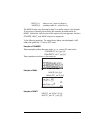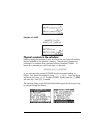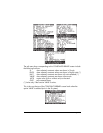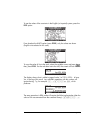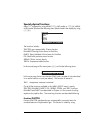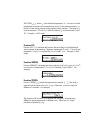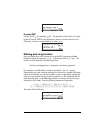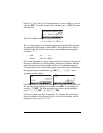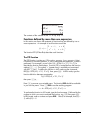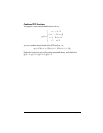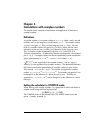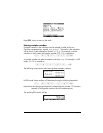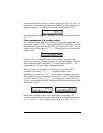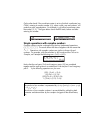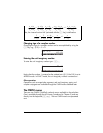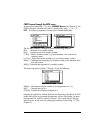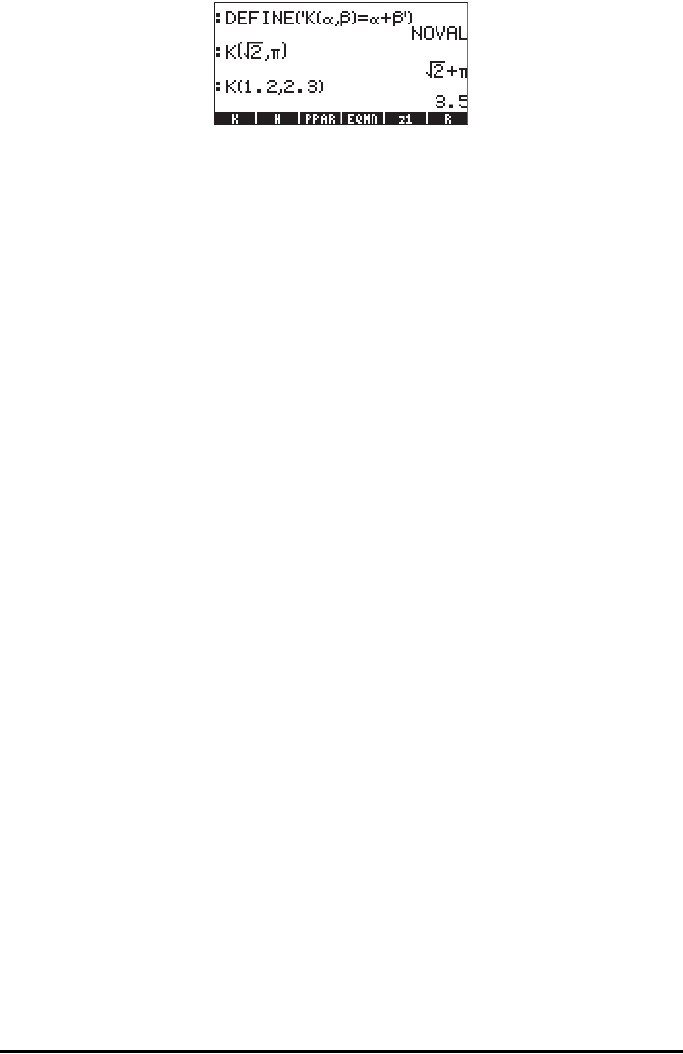
Page 3-36
The contents of the variable K are: << α β ‘α+β’ >>.
Functions defined by more than one expression
In this section we discuss the treatment of functions that are defined by two or
more expressions. An example of such functions would be
The function IFTE (IF-Then-Else) describes such functions.
The IFTE function
The IFTE function is written as IFTE(condition, operation_if_true, operation_if_false)
If condition is true then operation_if_true is performed, else operation_if_false is
performed. For example, we can write ‘f(x) = IFTE(x>0, x^2-1, 2*x-1)’, to
describe the function listed above. Function IFTE is accessible from the function
catalog (‚N). The symbol ‘>’ (greater than) is available as (associated
with the Y key). To define this function in ALG mode use the command:
DEF(f(x) = IFTE(x>0, x^2-1, 2*x-1)) then, press `. In RPN mode, type the
function definition between apostrophes:
‘f(x) = IFTE(x>0, x^2-1, 2*x-1)’
then press „à.
Press J to recover your variable menu. The function @@@f@@@ should be available
in your soft key menu. Press ‚@@@f@@@ to see the resulting program:
<< x ‘IFTE(x>0, x^2-1, 2*x-1)’ >>
To evaluate the function in ALG mode, type the function name, f, followed by the
number at which you want to evaluate the function, e.g., f(2), then press `.
In RPN mode, enter a number and press @@@f@@@. Check, for example, that f(2) =
3, while f(-2) = -5.
⎭
⎬
⎫
⎩
⎨
⎧
>−
<−⋅
=
0,1
0,12
)(
2
xx
xx
xf



